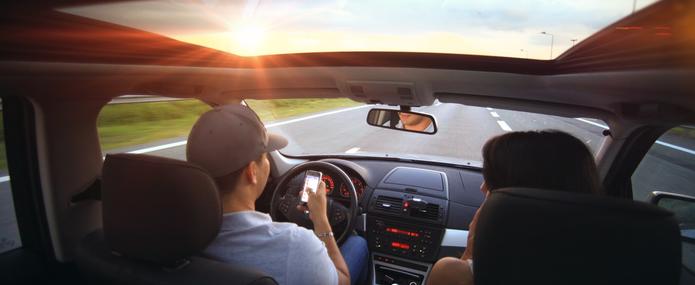The recent crisis triggered by rising fuel prices particularly highlights the fact that a large number of French people are dependent on private car use for a range of essential journeys. At the height of the crisis, the French Ministers for the Ecological Transition and Transport presented a mobility bill (Projet de Loi d’Orientation des Mobilités - LOM) to Parliament on 26 November. A result of the Assises Nationales de la Mobilité (national mobility conference) launched over a year ago (in which IDDRI took part), this bill is the outcome of the commitment made by the French President during the conference to provide solutions to the daily mobility problems of French people. The bill has not met all expectations in terms of sustainable mobility, as pointed out by environmental NGOs, and it cannot provide a comprehensive response to the demands expressed during the ongoing crisis in France. However, it does represent a real step forward. Daily carpooling is thus recognised in the bill as a mobility solution on its own, which must be supported by public policy.
In May 2016, IDDRI published a study on peer-to-peer carpooling and carsharing start-ups. This study looked at the development challenges facing these new short distance “collaborative mobility” actors, which had multiplied since 2012, encouraged by the dissemination of smartphones and digital progress. While we examined the potential of these new mobility solutions to reduce the environmental impact and cost of short distance travel, we also noted their difficulties, especially for carpooling. Despite the innovations delivered by these actors, the development of short distance carpooling still faced a number of obstacles: relatively limited financial attractiveness; cultural reluctance to share one’s car with other people; and difficulty creating a critical mass of users to ensure a reliable service, etc.
The study thus urged the public authorities—both local and national—to support these new mobility solutions and to integrate them into public transport provision. At the time, not everyone agreed on this position, since the local authorities were unable to assess the value and potential of these carpooling start-ups, whose services were regularly associated with those of private hire platforms (in 2016, we were still in the midst of the debate on the regulation of companies such as Uber). The issue of competition between these carpooling services and public transport also featured strongly in the interviews conducted as part of this study and in discussions during the conference organised by IDDRI in June 2016. Most of the start-ups were themselves positioned in a consumer to consumer (C2C) business model, within which the local authorities were not generally considered as real service stakeholders, from a public transport service approach. The start-ups thus saw the local public actors only as short-term strategic partners, which were needed to increase their visibility or to access different areas (and financing) for experiments.
Two years later, it is clear that the landscape of discussions has changed considerably. The Assises de la Mobilité conference was a key moment in clarifying the positions and questions of the different actors, thereby contributing to a greater shared understanding of the issues, as shown by the report by the working group on short distance carpooling. The recognition of carpooling as one of the key elements of a public mobility policy is thus clearly reflected in the LOM, whose article 15 “aims to create the conditions to enable the massive development of carpooling” (Projet de Loi d’Orientation des Mobilités n°157). Several steps have been taken in this direction: the possibility for employers to compensate employees who carpool, along the lines of the bicycle mileage allowance, with the creation of the “sustainable mobility package” (up to 400 euros per year, exempt from taxation); the possibility for the French mobility organising authorities (AOM) to subsidise carpooling by paying an allowance to drivers and passengers alike; and the possibility for the authorities to create dedicated lanes. The goal is thus to provide the authorities with tools enabling them to exercise their mobility powers in the field of carpooling. Beyond the LOM, through the beta.gouv.fr network, the French state is working to create a proof of carsharing registry in order to limit the risk of fraud in the management of monetary and non-monetary carpooling incentives. From the viewpoint of the start-ups, the market is also showing signs of maturity: their number has declined, leaving only those deemed the most promising. The start-ups still in the running have also forged much closer ties with territorial actors, companies and local authorities, which seem to be essential partners in building lasting carpooling services, both from a financial point of view, and because carpooling only works if it is integrated into an overall mobility system. For example, road infrastructure needs to be adapted in order to set up carpooling pick-up and drop-off points in strategic locations.
Short distance carpooling has therefore undergone a recognition and development process over the last two years, which should be further reinforced by the adoption of the LOM next year. However, everything remains to be done: short distance carpooling start-ups have not yet found a lasting business model: developing carpooling practices requires an in-depth understanding of local mobility dynamics from a network management approach, making it impossible to generalise and calling instead for action in each specific territory; and most of the financial incentive mechanisms established by the LOM (sustainable mobility package, subsidies for carpoolers, etc.) are not compulsory but voluntary. The next few years will be critical in making carpooling a stand-alone mode of transport, and a sustainable one, with the associated benefits in terms of pollution, congestion and access to mobility.

